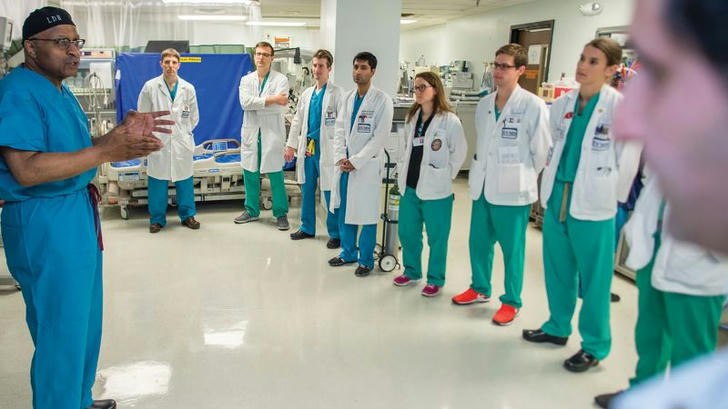Everything You Should Know About Gastric Sleeve
The gastric sleeve, or sleeve gastrectomy, is one of the most popular weight loss surgeries performed worldwide. With obesity rates rising and more people seeking permanent solutions to their weight management struggles, gastric sleeve surgery has become a go-to option for many. If you're considering this procedure, it’s essential to understand what it entails, its benefits, potential risks, and the lifestyle changes needed for long-term success.

About the procedure
Gastric sleeve surgery involves our surgeons removing about 70% of your stomach utilizing four to five very small incisions. The result is a stomach roughly the size and shape of a banana. With the gastric sleeve, the portion of your stomach that produces appetite-stimulating hormones will be removed. With your newly-formed stomach, you will not be able to eat as much as before and will be less hungry. In turn, you’ll lose weight through decreased appetite and eating notably less.
Gastric sleeve surgery is for people who have a BMI of 40+ or 35+ with associated medical issues.
How It Works
This surgery takes about one to two hours to perform. It is performed under general anesthesia using a laparoscopic or robotic approach, with four to five small incisions.
You will most likely stay in the hospital for one to two days. This procedure permanently alters the shape of your stomach.
Health Benefits
Patients who undergo this kind of weight-loss surgery usually lose, on average, about 50-65% of their excess weight. Gastric sleeve surgery is highly effective at treating and causing the remission of diabetes, PCOS, high blood pressure, cholesterol disorders and other medical conditions associated with obesity. Patients have also reported improved self-confidence and willingness to engage in more activities, whether social or physical.
Overall, the weight loss caused by this surgery often has a ripple effect on other health issues, resulting in better health and happiness in general.
What Are The Risks?
As with all major surgeries, including weight-loss surgeries, there are possible risks that include blood clots, infections, leaks in your intestinal system, or breathing problems. Gastric sleeve surgery carries risks that are similar to any abdominal surgery. However, when performed in a center-of-excellence such as ours, the risks are about the same as having your appendix removed. In our program, our safety record is in-line with or exceeds the standards set by the ASMBS in all regards.
With all our weight-loss surgeries, we will teach you how to increase your success and maintain your weight through our detailed, pre-operative education program.
How Much Will Your Procedure Cost?
A gastric sleeve surgery can vary in cost and is covered by most insurance providers. Use our free insurance checker to see if you’re eligible for full coverage. Self-Pay and FastTrack patients can see our pricing for more information.
What To Expect After Your Procedure
A gastric sleeve surgery takes about one hour to complete and usually involves a night or two in the hospital for observation. The recovery is relatively quick and patients can usually move around immediately after the surgery. There will be some pain around the surgical site but this is treated with pain medication and generally subsides in a few days. How soon patients can return to work depends on the nature of their jobs. We advise patients to avoid heavy lifting for a month after surgery and those with desk jobs can go back to work after one to two weeks.
We recommend you take it easy for the first few days immediately after the surgery. Be communicative with your surgeon about when you can resume normal physical activity.
Rediscovering Life: A Journey of Health and Happiness
Two-and-a-half years ago, Dawn Tooker was morbidly obese. She couldn’t walk more than a few steps without stopping to catch her breath. She couldn’t fly in an airplane, fit in a booth at a restaurant, or even tie her shoes. She was embarrassed to be seen in public. Worst of all, she couldn’t play with her grandkids.
Dr. Welsh performed the surgery at St. Mary’s Regional Hospital and sent Dawn home the next day to begin her post-surgery recovery. “Their recovery protocol is incredibly thorough and detailed,” Dawn said. “The dietary restrictions are very specific, and I was in close contact with the dietician to make sure I was receiving the right nutrients throughout my recovery. Summer Long, my Physician Assistant, was extremely helpful with on-going checkups, regular bloodwork and emotional support. The whole team was just incredible in helping me move forward toward achieving my goals.”
“Now, I’m half the size I was,” Dawn said. “Everything is different now. I have a much better outlook on life. I’m not afraid to go anywhere or be seen. I can move, I can play. I’m no longer diabetic, and I achieved my most important goal. When I chase my grandkids around and run at the park with them, it’s just the greatest thing in the world. I’m so glad I did it.”
Conclusion: A Lifelong Commitment to Health
Gastric sleeve surgery offers a transformative solution for individuals struggling with obesity, but it’s not a magic fix. It’s a powerful tool that, when paired with a commitment to healthy living, can lead to significant, sustainable weight loss. By making smart dietary choices, exercising regularly, and staying proactive about your health, you can achieve long-lasting results and significantly improve your quality of life.
If you are considering gastric sleeve surgery, it's crucial to do your research, consult with your healthcare provider, and understand the importance of the lifestyle changes required after the procedure. With the right approach, gastric sleeve surgery can be a life-changing step toward a healthier, happier you.
